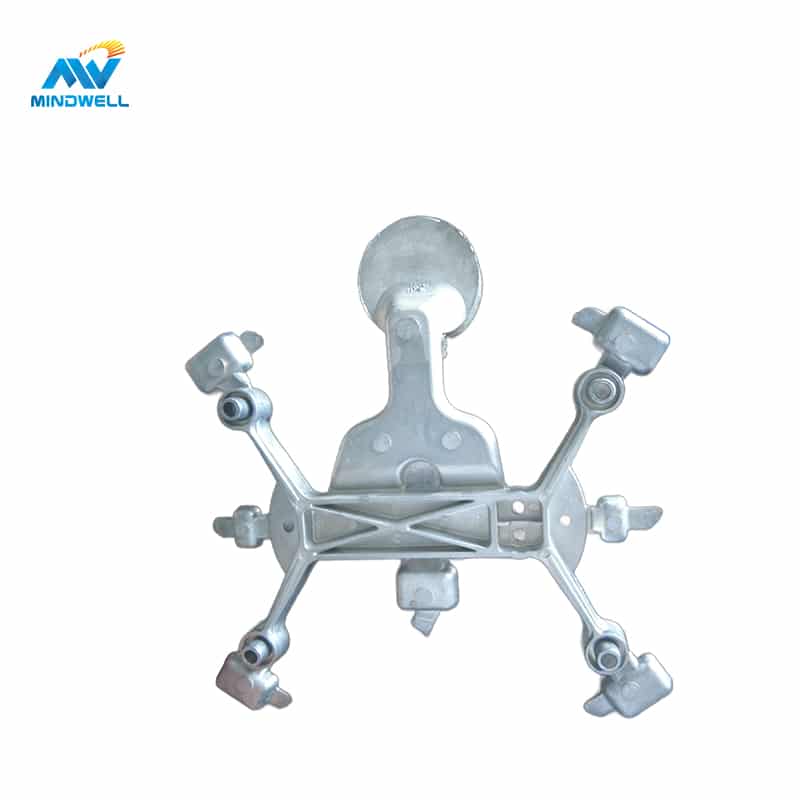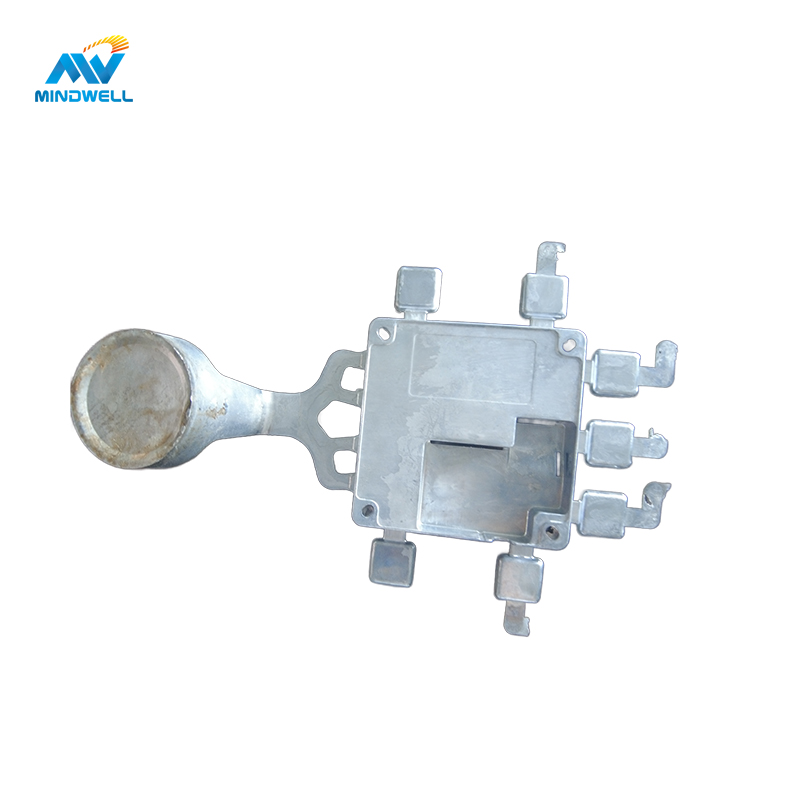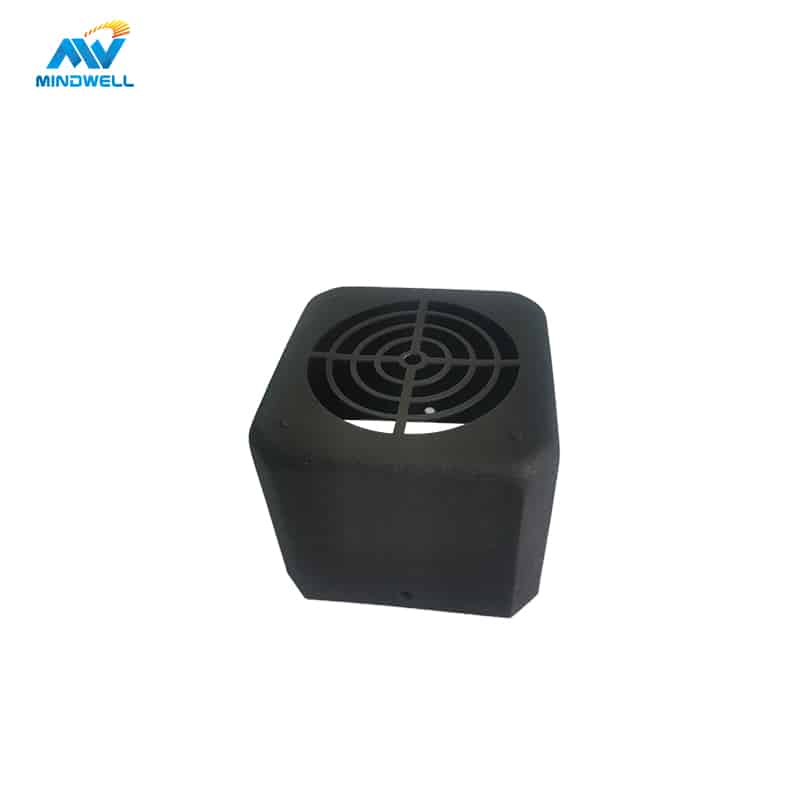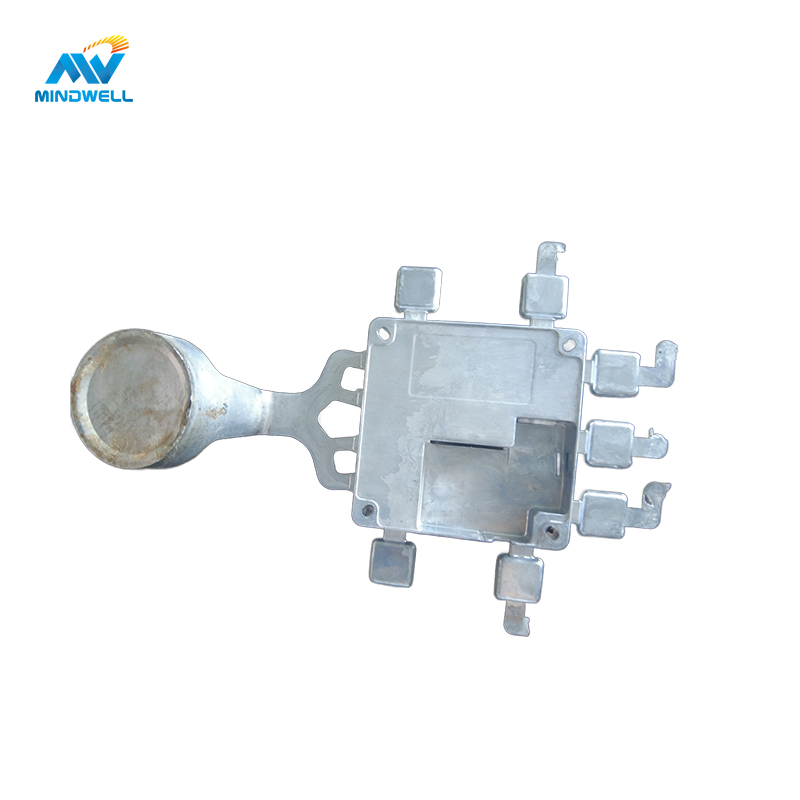Introduction

In the ever-changing manufacturing environment, aluminum die casting technology has become a key foundation for the production of complex, high-quality products. This article will take a closer look at the aluminum die casting product sector, analyzing its importance, range of applications and far-reaching impact on various industries.
Aluminum die casting is a meticulous craft known for its precision and versatility. It involves injecting molten aluminum into a mold under high pressure, resulting in detailed and precise parts. This manufacturing technology serves a variety of applications across industries, revolutionizing auto parts, powering electronic devices, improving consumer products and promoting sustainable practices.
- The art of accuracy
Aluminum die casting is an art form that demands meticulous attention to detail. The process involves injecting molten aluminum into a mold under high pressure, allowing complex and precise parts to be produced. This kind of precision is critical in industries where precision is critical. - Exploit versatility
One of the main advantages of aluminum die casting is its versatility. It can accommodate complex designs in automotive parts and rugged components in electronic equipment. This versatility makes it a popular choice for a wide variety of applications across industries. - Promote automobile revolution
Aluminum die casting revolutionized the automotive industry. Components such as engine blocks, transmission housings and structural components greatly benefit from aluminum’s lightweight and durable properties. These benefits contribute to improved fuel efficiency and overall vehicle performance. - Powering electronic devices and other areas
In electronics, aluminum die casting is the preferred method for manufacturing heat sinks, connectors and housings. Aluminum’s excellent thermal conductivity ensures optimal performance and heat dissipation, making it an ideal choice for electronic applications. In addition, aluminum die castings are used in various other industries such as aerospace and telecommunications. - Improving the grade of consumer goods
Aluminum die castings play an important role in increasing the structural integrity and durability of consumer products. From kitchen utensils to power tools, aluminum die castings help extend the life of these products. Aluminum’s lightweight nature also helps improve the ease of use and portability of consumer products. - Environmental advantages
Aluminum die casting complies with sustainable practices. Aluminum is fully recyclable, reducing environmental impact and contributing to a circular economy. The ability to recycle aluminum without compromising its quality makes it an environmentally friendly option for the manufacturing process. - Energy Efficiency
The die-casting process itself is energy-efficient, further cementing aluminum’s role in sustainable manufacturing practices. The high-pressure injection of molten aluminum into a mold requires less energy than other manufacturing methods. This energy efficiency helps reduce carbon footprint and reduce production costs. - Overcoming Challenges
Although aluminum die castings offer many advantages, they still face challenges such as porosity. However, continued innovation in process optimization and alloy development aims to address these issues. Continuous research and development work is dedicated to improving the quality and reliability of aluminum die castings. - Progress of alloys
Ongoing research into aluminum alloys has enhanced their mechanical properties, making them more resilient and adaptable to different applications. By fine-tuning the composition and structure of aluminum alloys, manufacturers can produce castings that meet specific performance requirements. - Future Trends and Outlook
The integration of aluminum die casting into smart manufacturing processes, combined with the Internet of Things (IoT) and automation, has the potential to reshape the industry. Intelligent manufacturing integration enables real-time monitoring and optimization, improving efficiency and productivity. - Advances in Simulation
Simulation technology continues to evolve to provide more accurate predictions for the die-casting process. By simulating the casting process, manufacturers can optimize designs, identify potential problems and ensure enhanced quality control. Advances in simulation technology have contributed to overall improvements in aluminum die castings.
Aluminum die-casting is a versatile and precise manufacturing process that offers numerous advantages across a variety of industries. From revolutionizing the automotive industry to powering electronic devices and improving consumer products, aluminum die castings play a crucial role in a variety of applications. The future of aluminum die casting looks promising with continued innovation and advancement, with the potential for smart manufacturing integration and improved quality control through simulation technology.
in conclusion
To sum up, aluminum die-cast products are representative of modern manufacturing, embodying the fusion of precision, versatility and sustainability. They are used across a wide range of industries and, through continued innovation, underline their key role in shaping the production of the future. The further development and application of aluminum die-casting technology will not only promote the progress of various industries, but also bring profound changes to our production methods.
Frequently Asked Questions
Q1: How do aluminum die castings contribute to sustainable development?
The sustainable development contribution of aluminum die castings mainly comes from the recyclability of its materials. Aluminum is an infinitely recyclable metal, which means that aluminum die castings can be recycled, reprocessed, and reused to produce new aluminum die castings after their life cycle, thereby reducing the consumption of natural resources. , reducing environmental impact and promoting the development of circular economy.
Q2: What are the main challenges facing aluminum die casting?
The main challenges faced by aluminum die-casting include internal defects such as porosity, pores, cold shut, and surface quality issues. The occurrence of these problems may be related to the selection and optimization of process parameters such as mold design, gate location, pouring temperature, injection speed, etc. In addition, alloy development is an ongoing challenge, requiring continuous innovation to adapt to new application needs.
Q3: Can aluminum die castings be integrated into intelligent manufacturing processes?
Yes, aluminum die castings can be integrated into smart manufacturing processes. By combining aluminum die castings with technologies such as the Internet of Things, big data, cloud computing, and automation, the production process can be made intelligent, networked, and flexible, improve production efficiency, reduce costs, and adapt to rapid changes in market demand.
Q4: What benefits does aluminum die casting bring to the automotive industry?
Aluminum die castings have a wide range of applications in the automotive industry. Because aluminum die castings have the advantages of lightweight, high strength, and corrosion resistance, they are widely used in the manufacture of automotive engine blocks, transmission housings, wheels, and other components. These components play an important role in improving the performance and fuel economy of your vehicle. In addition, the manufacturing process of aluminum die castings is flexible and can quickly produce parts of various shapes and sizes, thus shortening the product development cycle and reducing costs.
Q5: What role will simulation play in the future of aluminum die casting?
Simulation technology plays an important role in the future of aluminum die casting. By simulating the die-casting process, possible defects can be predicted and controlled, thereby improving product quality and consistency. In addition, simulation can be used to optimize mold design and selection of process parameters, improve production efficiency and reduce costs. With the continuous development of computer technology and numerical simulation software, simulation will play a more important role in the future of aluminum die casting.
Visit now: Explore more






